MOS Capacitor: Exploring Its Role and Applications in Modern Electronics
A MOS capacitor (Metal-Oxide-Semiconductor Capacitor) is a key component in modern electronic devices. It works by utilizing the properties of a MOS structure to form a capacitive layer, crucial for various semiconductor applications. From high-performance transistors to analog circuits, MOS capacitors play a critical role in enhancing the performance, efficiency, and stability of electronic systems. Understanding how MOS capacitors function helps in optimizing electronic designs for different uses, such as signal processing, storage, and energy management.
Key Types of MOS Capacitors and Their Applications
MOS capacitors are integral to a range of electronic devices, with different types designed to meet specific needs in various fields. The most common types include N-type, P-type, and CMOS capacitors. Each type offers distinct advantages in terms of capacitance, switching speed, and voltage handling.
In addition, specialized versions like the bootstrap and deep depletion MOS capacitors provide unique benefits for complex semiconductor circuits, making them indispensable in modern electronic engineering.
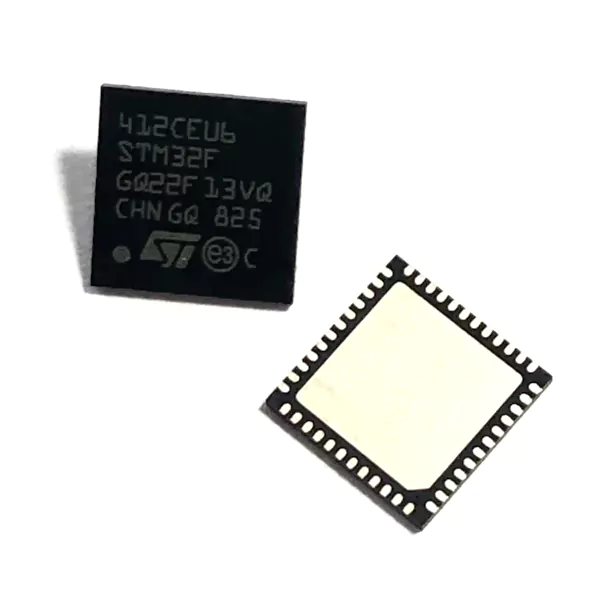
MOS as Capacitor
MOS capacitors are an essential element in semiconductor technology. Their unique structure allows them to operate efficiently as capacitors within integrated circuits. They provide charge storage capabilities and control over voltage levels, making them ideal for use in both analog and digital applications.
Their integration in devices like microchips and transistors helps improve performance and reduce energy consumption.
MOSFET Capacitor
The MOSFET (Metal-Oxide-Semiconductor Field-Effect Transistor) capacitor is critical for the operation of MOSFET-based circuits. It helps stabilize the gate voltage and enhances the device’s switching characteristics. This type of capacitor is often used in power management systems, high-speed signal processing, and RF circuits, playing a vital role in minimizing noise and ensuring signal integrity.
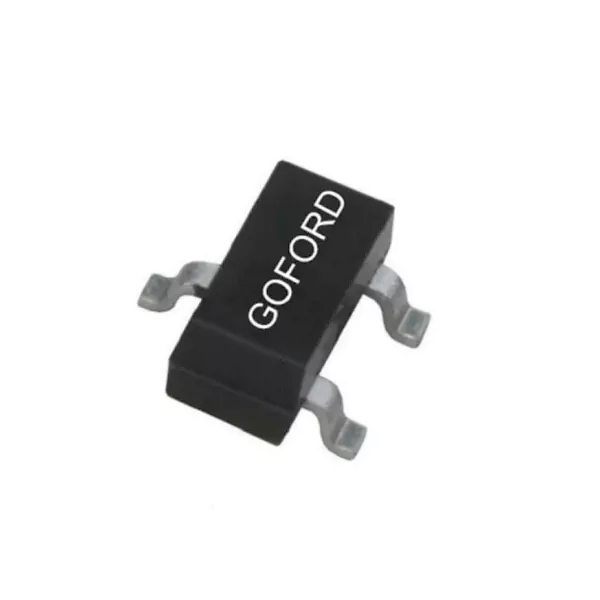
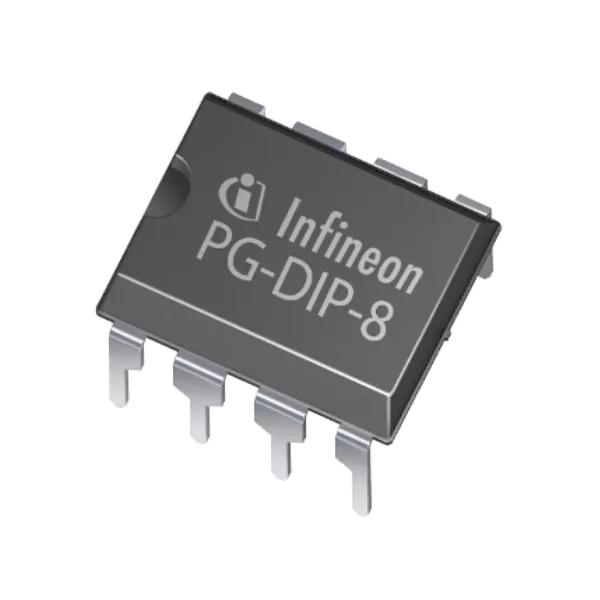
Bootstrap Capacitor MOSFET
Bootstrap capacitors are vital for driving the gate voltage in high-side MOSFET circuits, especially in motor drivers, inverters, and switching power supplies. They provide the necessary voltage to turn on the MOSFET, ensuring efficient switching and minimizing power loss. By stabilizing the gate voltage, bootstrap capacitors enhance performance, reduce switching delays, and improve the overall efficiency of power electronics.
CMOS Capacitor
CMOS capacitors are key components in CMOS technology, used in low-power digital circuits. They store charge, regulate voltage, and filter noise, ensuring stable operation in devices like microprocessors, memory chips, and image sensors. CMOS capacitors help improve energy efficiency by reducing power consumption, making them ideal for battery-powered devices such as smartphones and portable electronics, where low energy usage is essential.
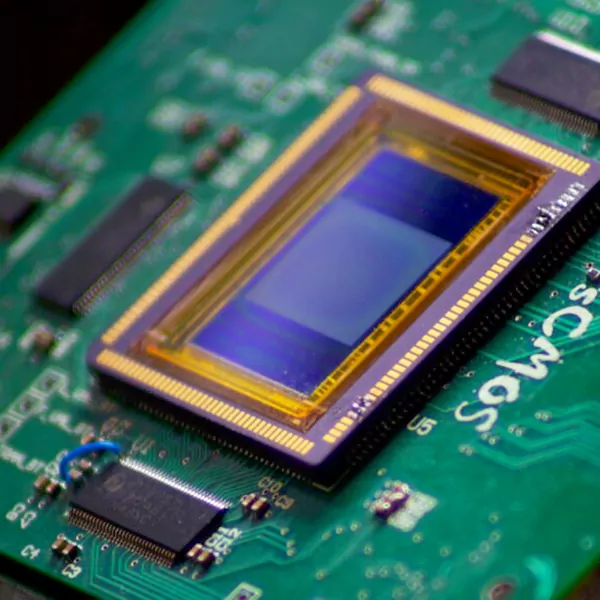
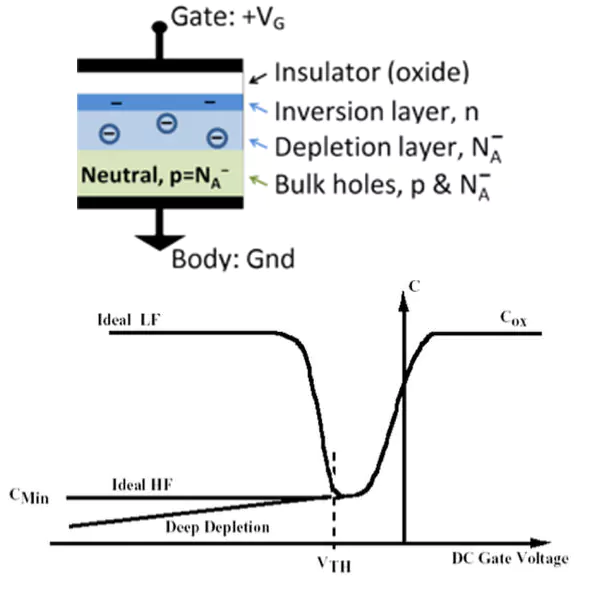
Deep Depletion MOS Capacitor
Deep depletion MOS capacitors are designed for applications that require high capacitance and stable performance in deep depletion regions. They are used in precision analog circuits, radar systems, and high-frequency applications. These capacitors offer improved performance in conditions where standard MOS capacitors may not function efficiently, providing greater stability and reliability in complex semiconductor systems.
N Type MOS Capacitor
N type MOS capacitors are constructed using N-type semiconductor material, creating a negatively charged region under the oxide layer. These capacitors are widely used in integrated circuits, where low leakage current and high-speed performance are critical. N type MOS capacitors help improve voltage regulation and energy storage, making them ideal for use in digital systems, voltage regulators, and other applications that require fast charge storage and discharge.
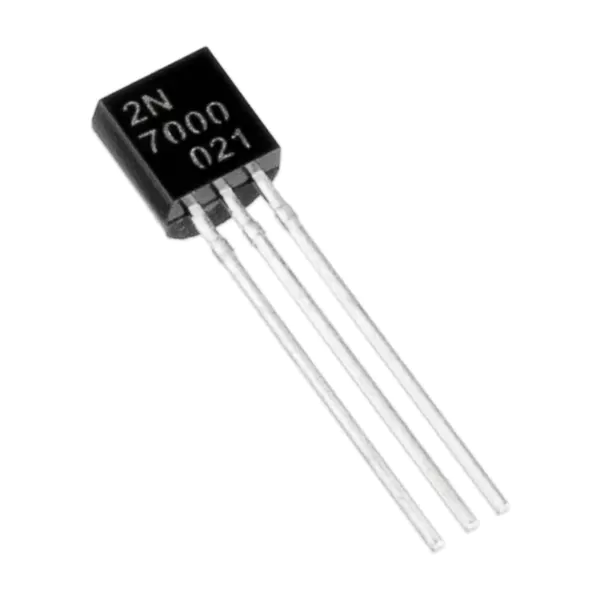
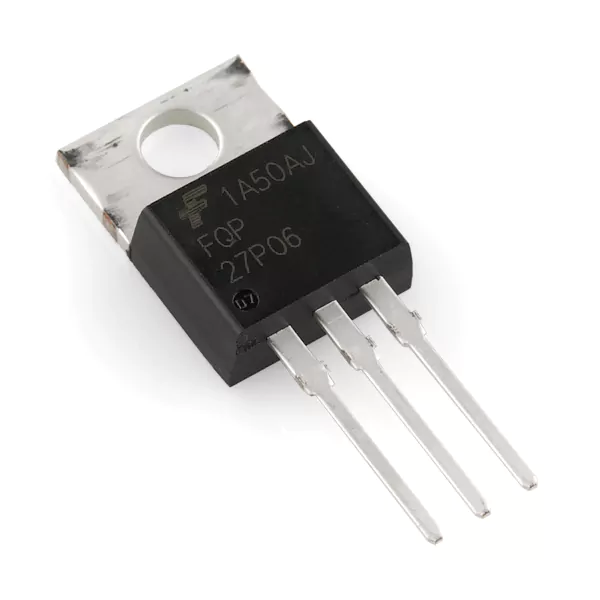
P MOS Capacitor
P MOS capacitors are built with P type semiconductor material, producing a positively charged region beneath the oxide layer. These capacitors are commonly used in CMOS technology for voltage sensing, energy storage, and filtering. P MOS capacitors are especially useful in analog circuits and energy-efficient designs, helping to reduce power consumption and increase the overall performance of electronic systems.
Understanding the Role of MOS Capacitors in Electronics
Introduction to MOS Capacitors
MOS (Metal-Oxide-Semiconductor) capacitors are essential components in modern electronics, used in a variety of applications ranging from memory devices to high-speed microprocessors. A typical MOS capacitor consists of three layers: a metal gate, an oxide dielectric layer, and a semiconductor substrate. When a voltage is applied to the metal gate, it creates an electric field that influences the charge distribution in the semiconductor, allowing the capacitor to store charge.
The structure of MOS capacitors allows for precise control over voltage regulation, making them crucial for ensuring the stability and efficiency of semiconductor devices. Their ability to operate at high speeds with low power consumption has made them a cornerstone in the design of modern integrated circuits (ICs).
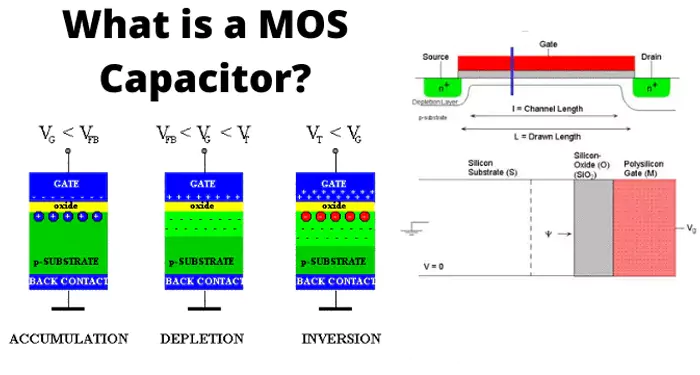
How MOS Capacitors Work?
MOS capacitors function by exploiting the unique properties of the MOS structure. When a voltage is applied to the metal gate, it generates an electric field that either attracts or repels charge carriers in the semiconductor beneath the oxide layer, depending on the polarity of the applied voltage. This action controls the charge density in the semiconductor and allows the capacitor to store electrical energy.
The oxide layer acts as a dielectric material, ensuring that no direct current flows between the gate and the semiconductor while still allowing for effective voltage regulation. MOS capacitors are known for their ability to operate at very high frequencies, which is why they are extensively used in applications requiring high-speed signal processing and voltage stabilization.
Applications of MOS Capacitors
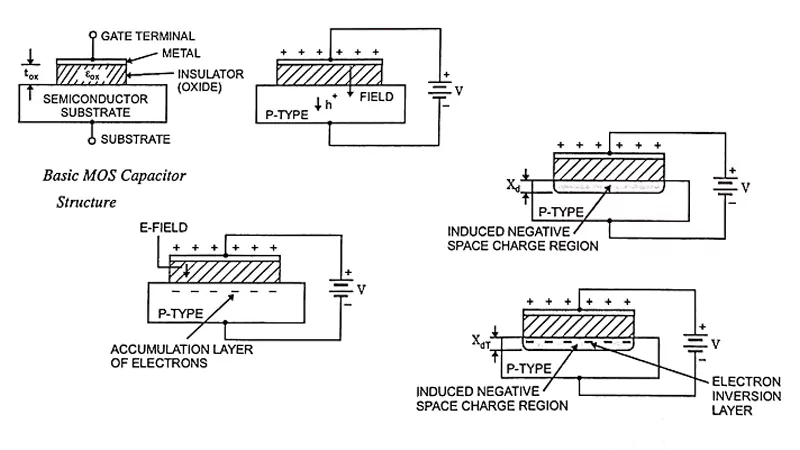
MOS capacitors are widely used in both analog and digital applications, and their versatility makes them invaluable in many fields of electronics. In digital circuits, MOS capacitors help manage voltage fluctuations and reduce noise, contributing to the stability and performance of microprocessors, memory chips, and logic circuits. In analog circuits, MOS capacitors are crucial for filtering signals, smoothing out voltage variations, and improving signal quality.
They are found in devices ranging from consumer electronics like smartphones and computers to industrial systems and telecommunications equipment. Additionally, MOS capacitors are used in radio-frequency (RF) circuits, where their high-frequency capabilities are essential for maintaining stable performance in communication systems.
MOS Capacitors in Power Management
One of the most critical applications of MOS capacitors is in power management systems. In switching power supplies, voltage regulators, and motor drivers, MOS capacitors help store and regulate charge, ensuring that the voltage levels remain stable even when the power input fluctuates.
They are particularly useful in systems that require rapid switching, as they allow the voltage across the gate of a MOSFET to be regulated quickly, facilitating faster switching speeds and more efficient power conversion. This leads to a significant reduction in power loss and increases the efficiency of the overall system.
By enhancing the performance of power supplies and converters, MOS capacitors help make electronic devices more energy-efficient, contributing to longer battery life in portable devices and reducing overall energy consumption in industrial applications.
Deep Depletion and Specialty MOS Capacitors
In addition to standard MOS capacitors, there are specialized versions designed for more advanced applications. One such variation is the deep depletion MOS capacitor, which is designed to operate in the deep depletion region of the semiconductor. These capacitors are particularly useful in precision analog circuits, where high capacitance and stable operation are required. Deep depletion MOS capacitors offer enhanced performance in high-frequency and high-precision systems, such as radar and RF communication circuits. These capacitors provide greater stability and reliability than standard MOS capacitors, making them ideal for applications where signal integrity and accuracy are critical.
Conclusion
MOS capacitors are an indispensable component in modern electronics. Their ability to store charge, regulate voltage, and enhance signal stability makes them vital in a wide range of applications. From consumer electronics to industrial systems, MOS capacitors contribute to the reliability, efficiency, and performance of countless devices. As technology continues to advance, the importance of MOS capacitors will only increase, enabling the development of faster, more energy-efficient, and more reliable electronic systems. Understanding the role of MOS capacitors helps engineers and designers optimize their designs, ensuring that electronic devices meet the ever-increasing demands of modern technology.
Mos Capacitors FAQs
A MOS (Metal-Oxide-Semiconductor) capacitor is a type of capacitor used in semiconductor devices. It is formed by a metal layer, an oxide layer, and a semiconductor material. The metal acts as the gate, the oxide layer serves as the dielectric, and the semiconductor acts as the substrate. MOS capacitors are essential for regulating voltage and storing charge in circuits, especially in integrated circuits (ICs).
These capacitors are widely used in analog and digital devices to enhance performance and stability, such as memory devices, microchips, and transistors. Their ability to handle high-frequency signals makes them crucial in modern electronics.
While both MOS capacitors and MOSFET capacitors use similar structures, their roles are different. A MOS capacitor is primarily used for charge storage and voltage regulation, playing a key role in stabilizing circuits. In contrast, a MOSFET capacitor is specifically designed for use in MOSFET (Metal-Oxide-Semiconductor Field-Effect Transistor) circuits.
The MOSFET capacitor helps to stabilize the gate-source voltage of MOSFETs, ensuring efficient switching performance in power management and high-speed circuits. In essence, MOSFET capacitors are crucial for the switching characteristics of transistors, whereas MOS capacitors are used for charge storage and voltage control.
A bootstrap capacitor in a MOSFET circuit is used to drive the gate voltage of a high-side MOSFET. In switching power supplies and motor drivers, a bootstrap capacitor ensures that the gate of the high-side MOSFET receives enough voltage to fully turn on. Without the bootstrap capacitor, the MOSFET might not switch correctly, causing inefficient operation.
This component plays an essential role in improving circuit efficiency by reducing power losses and ensuring proper switching, especially in systems with higher voltage levels or where traditional gate voltages are insufficient to drive the MOSFETs.
CMOS (Complementary Metal-Oxide-Semiconductor) capacitors are widely used in CMOS technology, which is fundamental in creating low-power, high-performance integrated circuits. These capacitors store charge and regulate voltage, making them crucial for the functioning of microprocessors, memory chips, and sensors.
CMOS capacitors also help filter noise and stabilize voltage levels, contributing to the reliability of digital circuits. Due to their low power consumption, CMOS capacitors are ideal for battery-operated devices like smartphones, tablets, and portable electronics, where power efficiency is critical.
A deep depletion MOS capacitor is designed for advanced semiconductor applications that require higher capacitance and stable performance in deep depletion regions. These capacitors are used in precision analog circuits, high-frequency applications, and radar systems.
The deep depletion feature enables these capacitors to maintain stable operation even in conditions where standard MOS capacitors would not perform well. As a result, deep depletion MOS capacitors are ideal for use in high-performance systems that demand greater accuracy and reliability, such as RF systems, advanced sensors, and precision measurement instruments.